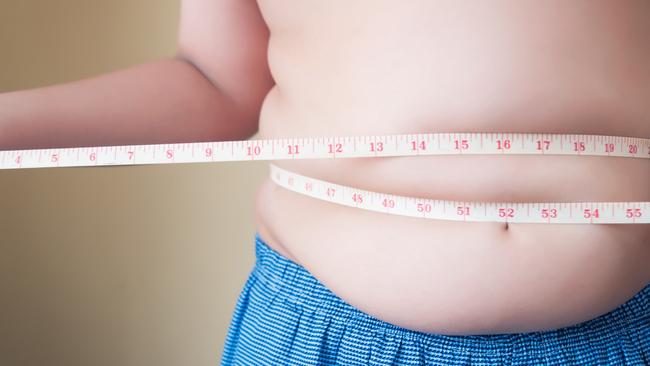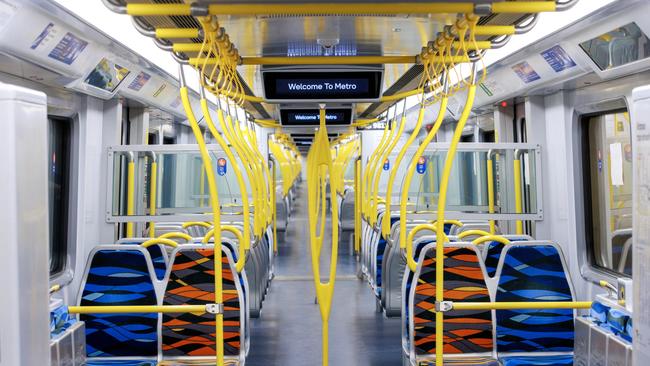Plea knocked back as the government has no plans to ban junk food marketing at the new stations
The state government is resisting the Cancer Council’s call to ban junk food marketing at Melbourne’s new Metro Tunnel stations.

Victoria
Don't miss out on the headlines from Victoria. Followed categories will be added to My News.
Victoria’s peak cancer body is on a collision course with the state government over a push for junk food advertising to be banned from Melbourne’s Metro Tunnel stations.
Cancer Council Victoria has called on the government to refuse to allow marketing for unhealthy products at the city’s flagship rail project when it opens next year, as new data reveals two-thirds of parents support scrapping such ads.
But the government is resisting the demand.
The council’s head of obesity programs, Jane Martin, said removing junk food advertising would protect children’s health and lower their cancer risk.

The council pointed to new data from a 2022 survey of 400 parents, which found two-thirds supported restrictions on unhealthy food and drink marketing on public transport.
When asked about banning such advertisements near schools, this shot up to 80 per cent. Ms Martin said this showed parents understood marketing’s impact.
“It influences what children eat, what they want to eat and what they ask to eat,” she said.
“If these eating patterns and unhealthy weight is carried through into adulthood … these Victorians will be more at risk of developing cancer later in life, in adulthood.”
Ms Martin denied the restriction would be an overreach, saying it was no different to other bans on advertising alcohol or cigarettes to children.
“It’s important that we’re creating an environment where health is prioritised over the profits of these companies,” she said. “It’s very difficult for parents to protect their children from this marketing, because it reaches children no matter what they do.

“Cities including Canberra, London and Amsterdam have all taken steps to create transport systems free from junk food advertising.”
Cancer Council chief executive Todd Harper said obesity was “one of the biggest influences on cancer” but it was often underestimated, with people far more aware of the risks of smoking and sunbathing.
“Being above a healthy weight increases the risk of about 13 different cancers,” he said. “It’s responsible for about 5300 cases of cancer in Australian adults every year.
“It’s an uphill battle when processed food companies bombard our kids with at least 25 unhealthy ads daily.”
But the government currently has no plans to ban junk food marketing at the new stations, with a spokeswoman instead pointing to other initiatives such as legislation on kilojoule labelling, to promote healthy eating.
“We’re rolling out our five-year action plan to help Victorian children and young people thrive as they grow through the promotion of healthy eating and active lifestyles,” she said.
The Australian Food and Grocery Council said advertising restrictions were not a “silver bullet” for tackling obesity “due to its complex, multi-factorial causes”.



